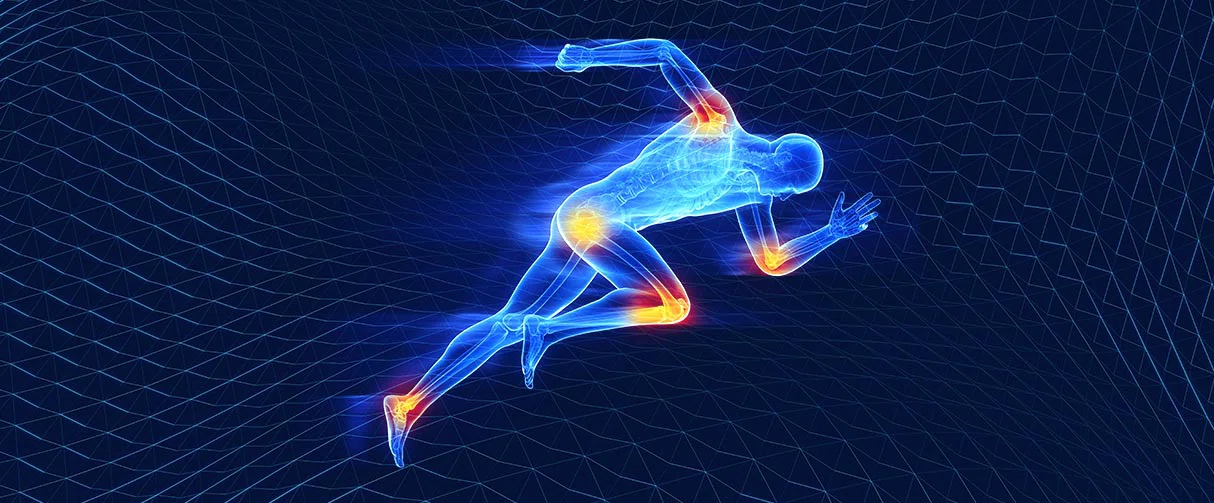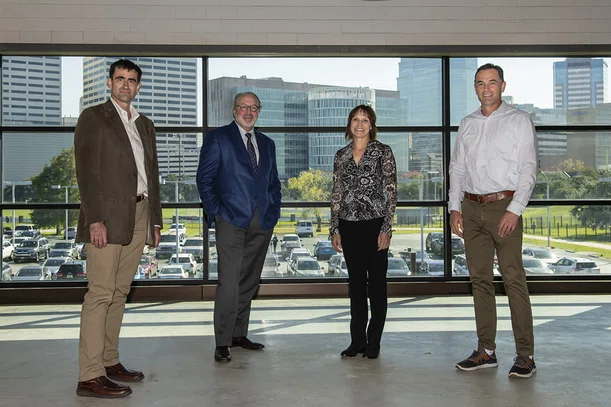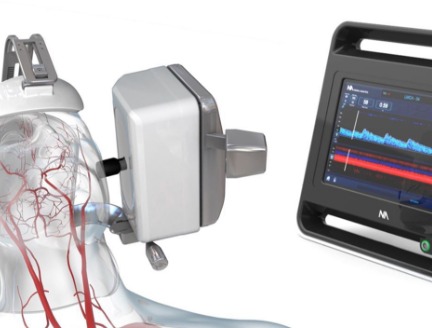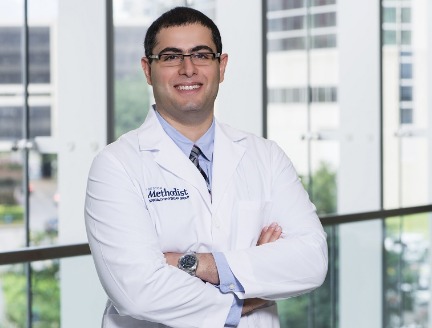


Outcomes research
Houston Methodist, Rice launch Center for Human Performance

New joint collaboration will benefit everyone from elite athletes to older adults
Houston Methodist and Rice University are joining forces to create a premier center where physicians, academic researchers and university students work side by side with student athletes, trainers and coaches to advance research and education in human performance.
The Houston Methodist-Rice University Center for Human Performance will facilitate joint research, clinical care initiatives and educational activities in exercise physiology, injury prevention and rehabilitation.

From left, Rice University Dean of Natural Sciences Tom Killian, PhD; Patrick McCulloch, MD, Houston Methodist's John S. Dunn Chair of Orthopedics; Rice Kinesiology Chair Heidi Perkins, PhD; and Rice Director of Athletics Joe Karlgaard, PhD, in the Tudor Fieldhouse suite that will house the Center for Human Performance, a joint venture between Houston Methodist’s Department of Orthopedic Surgery, Rice’s Department of Kinesiology and Rice Athletics. (Photo by Tommy LaVergne/Rice University)
“By partnering with Rice University, we have a unique opportunity to work together to advance our body of research and knowledge on human performance,” said Patrick McCulloch, MD, the John S. Dunn Chair of Orthopedics at Houston Methodist. “Researchers with the center will develop novel techniques to prevent, treat and recover from musculoskeletal injuries and diseases. Ultimately, these efforts will have a huge benefit for our patients at Houston Methodist. High-performance athletes, older adults and everyone in between will have access to treatment that is informed by the cutting-edge research undertaken at the center.”
A joint research collaboration between Houston Methodist’s Department of Orthopedics and Sports Medicine, Rice Kinesiology and Rice Athletics, the center will be located in 6,000 square feet of renovated space in Rice’s Tudor Fieldhouse. It will be equipped for state-of-the-art studies requiring the latest technology for advanced 3D motion capture, force-plate measurement, region-by-region quantification of bone density, metabolic analysis, cardiovascular screening and aerobic performance testing.
“Enhancing performance means optimizing results, and the study of human performance applies to more than sports,” said Heidi Perkins, PhD, chair of Rice’s Department of Kinesiology. “Research in human performance benefits athletes, but it also benefits older adults, performing artists, people with disabilities, surgical patients — basically anyone who needs to function better and improve their quality of life through some combination of physical activity, nutrition, sleep and the like.”
“This is a transformational moment for Rice Kinesiology,” said Tom Killian, PhD, dean of natural sciences at Rice. “The Center for Human Performance will attract new faculty, provide student research and internship opportunities, and create opportunities for interdisciplinary collaborations between Rice Kinesiology faculty and peers in biomechanics, neuroscience, human factors, robotics, wearable technologies, data sciences, biosciences and other disciplines.”
The Center for Human Performance will support Rice Athletics and Rice student athletes by both improving physical performance and providing on-campus clinical assessments, treatments and rehabilitation as well as educational and internship opportunities.
“The Rice-Methodist partnership in the Center for Human Performance is a game-changer for our athletics department,” said Joe Karlgaard, PhD, director of athletics at Rice. “The center’s approach to optimizing athletic performance encompasses diagnostics, nutrition, innovative technologies for rehabilitation and recovery, and best practices for injury prevention. This holistic, science-based vision for individualized care and treatment of athletes aligns with the goals in our comprehensive strategic plan, Vision for Victory.”
For more information, visit chp.rice.edu.
March 2022








